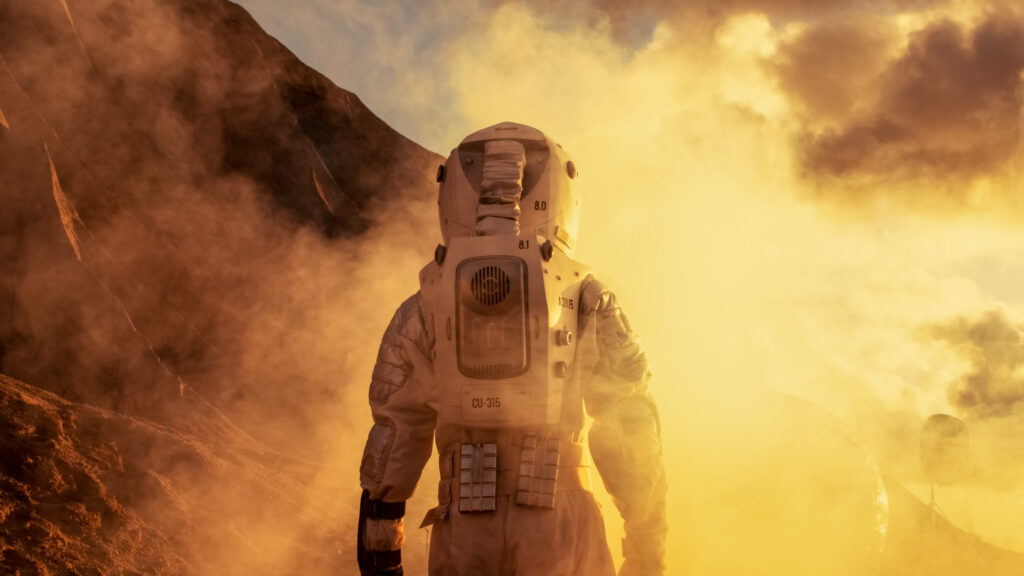Vox’s billionaire envy shows in anti-space-exploration screed
February 4, 2022
For Vox, space seems to be a big yawn reserved only for billionaire oligarchs and their fancy friends while struggling humanity has to stay home and eat dirt.
But in reality, Vox needs to press pause on the money envy that drives the agenda at the online publication and look at space flight more logically. Because the exploration of space might make the difference between human existence or extinction.
In a new piece at Vox called It’s the dawn of a new space age — at least for billionaires, Vox argues that NASA should have a more down-to-earth mission than going to Mars or exploring the universe.
“NASA should prioritize monitoring the Earth’s climate and atmosphere for asteroids and debris above sending manned trips to outer space,” Vox said, claiming that people on earth have grown resentful over “billionaire-led space tours.”
Instead said Vox, “Bezos’s or Branson’s money [both of which billionaires have hosted costly sub-orbital space trips recently] should go toward pressing earthly causes, like fair wages for workers, taxes, medical research, climate change, or world hunger.”
Ignoring the fact that what Bezos and Branson do with their own money has nothing to do with NASA’s budget, Vox has missed the outsized economic benefits that the commercialization of space flight has created and misunderstood that NASA already does climate research and monitors for asteroids.
Since much of the heavy lifting of getting payloads into space has been taken over by commercial space companies, like Elon Musk’s SpaceX, the astronomical cost associated with a space launch has been driven down to more earthly levels.
Using data supplied by the Center for Strategic and International Studies, the Visual Capitalist has figured that launches that previously cost nearly $13,000 per kilogram of cargo, now costs closer to $1300 per kilogram. And when SpaceX’s Starship vehicle is operational the cost will get down to $200 per kilogram.
For perspective, the Visual Capitalist figured that Space Shuttle launches cost around $51,000 per kilogram.
That means that soon the cost of benefits will be low enough that space flight will have an impact on real people with new technologies that use space to help us with everyday problems on earth, like pollution control.
One such technology is the mining of asteroids that contain metals, including rare earth elements—in amount far above what’s available on earth.
One asteroid NASA is exploring is worth an estimated $10 quintillion in metals and elements, more or less, said the Jerusalem Post, although it’s unlikely that that particular asteroid will ever be mined.
The savings on pollution mitigation alone from not having to mine here on earth would justify the cost of moving mining to space.
From off-earth manufacturing, to biotech production and development, to colonizing the moon or Mars, there are hundreds of applications made available from space flight, commercial or public, that can benefit mankind even if space is explored by billionaires.
Indeed, simple multiplication tells us that one day, the world will run out of resources to sustain humanity if we don’t go to space whether that date is 200 years away or 2,000 years away.
American citizens have already born the cost of developing these technologies for space flight, though and now is the time for them to reap the benefits through the commercialization of space, the least part of which is about space tourism.
“You want to wake up in the morning and think the future is going to be great,” said SpaceX’s Musk, “and that’s what being a spacefaring civilization is all about. It’s about believing in the future and thinking that the future will be better than the past.”
Even for billionaires.
